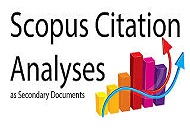Efek Internet of Things Terhadap Pelaksanaan Tugas, Prestasi dan Kinerja Guru Sekolah Dasar Berdasarkan Gender dan Usia
DOI:
https://doi.org/10.33394/jk.v7i3.3212Keywords:
Internet, Duties, Achievement, Teachers Performance, Gender, Age.Abstract
References
Amalia, A., & Fatonah, S. (2020). Penerapan Pembelajaran Daring Dragonlearn pada Era Pandemic Covid-19 (Studi Kasus di MI Ma’had Islam Kopeng). ISEJ: Indonesian Science Education Journal, 1(3), 148-164.
Atsani, K. L. G. M. Z. (2020). Transformasi media pembelajaran pada masa Pandemi COVID-19. Al-Hikmah: Jurnal Studi Islam, 1(1), 82-93.
Isaac, O., Abdullah, Z., Ramayah, T., & Mutahar, A. M. (2017). Internet Usage, User Satisfaction, Task-Technology Fit, And Performance Impact Among Public Sector Employees In Yemen. The International Journal Of Information And Learning Technology.
Odacı, H., & Çelik, Ç. B. (2017). Internet Dependence In An Undergraduate Population: The Roles Of Coping With Stress, Self-Efficacy Beliefs, And Sex Role Orientation. Journal Of Educational Computing Research, 55(3), 395-409.
Mansyur, A. R. (2020). Dampak covid-19 terhadap dinamika pembelajaran di indonesia. Education and learning journal, 1(2), 113-123.
Mastura, M., & Santaria, R. (2020). Dampak Pandemi Covid-19 Terhadap Proses Pengajaran Bagi Guru Dan Siswa. Jurnal Studi Guru Dan Pembelajaran, 3(2), 289-295.
Peraturan Pemerintah No. 74 Tahun 2008 Tentang Guru. Jakarta-Bnsp.
Shafie, A. A. H., Kahar, N. F. A., Rahimi, M. K. A., Ahmad, R., Wibowo, M. E., & Purwanto, E. (2019). The Effectiveness Of Reality Group Counseling In Enhancing Multiple Intelligence And Motivational Achievement Of Students In Malaysia And Indonesia With The Tendency Of Problematic Internet Use. International Journal Of Business And Social Science, 10(6).
Salsabila, U. H., Sari, L. I., Lathif, K. H., Lestari, A. P., & Ayuning, A. (2020). Peran Teknologi Dalam Pembelajaran Di Masa Pandemi Covid-19. Al-Mutharahah: Jurnal Penelitian Dan Kajian Sosial Keagamaan, 17(2), 188-198.
Shahibi, M. S., & Rusli, K. N. (2017). The Influence Of Internet Usage On Student'€™ S Academic Performance. International Journal Of Academic Research In Business And Social Sciences, 7(8), 873-887.
Sappaile, B. I. (2010). Konsep Penelitian Ex-Post Facto. Jurnal Pendidikan Matematika, 1(2), 1-16.
Sudjana, Nana. (2004). Dasar-Dasar Proses Belajar Mengajar. Bandung: Sinar Baru Algesindo
Sugiyono. (2010). Metode Penelitian Kuantitatif, Kualitatif Dan R Dan D. Alpha - Beta, Bandung.
Surani, D., Kusuma, J. W., & Kusumawati, N. (2020). Platform Online Dalam Perkuliahan Pada Masa Pandemi Covid-19. Jurnal Pendidikan: Teori, Penelitian, dan Pengembangan, 5(9), 1338-1349.
Susena, E. (2014). Analisis Pengaruh Intensitas Penggunaan Internet Terhadap Kecerdasan Mahasiswa Diploma Tiga Dengan Kreatifitas Sebagai Variabel Moderator. Jurnal Sainstech, 1(1), 1-6.
Sofyani, H., & Dwirama, V. (2020). Determinan Praktik Internet Reporting Oleh Pemerintah Daerah Di Indonesia. Kompartemen: Jurnal Ilmiah Akuntansi, 17(2).
Thanuskodi, S. (2013). Gender Differences in Internet Usage Among College Students: A Comparative Study. Library Philosophy and Practice (e-journal). Lincoln: Nebraska.
Widarto, M. P. (2013). Penelitian Ex Post Facto. Fakultas Teknik: Universitas Negeri Yogyakarta.
Xu, X., Wang, J., Peng, H., & Wu, R. (2019). Prediction Of Academic Performance Associated With Internet Usage Behaviors Using Machine Learning Algorithms. Computers In Human Behavior, 98, 166-173.
Young, K. S., & De Abreu, C. N. (Eds.). (2017). Internet Addiction In Children And Adolescents: Risk Factors, Assessment, And Treatment. Springer Publishing Company.
Downloads
Published
How to Cite
Issue
Section
Citation Check
License
License and Publishing AgreementIn submitting the manuscript to the journal, the authors certify that:
- They are authorized by their co-authors to enter into these arrangements.
- The work described has not been formally published before, except in the form of an abstract or as part of a published lecture, review, thesis, or overlay journal.
- That it is not under consideration for publication elsewhere,
- That its publication has been approved by all the author(s) and by the responsible authorities – tacitly or explicitly – of the institutes where the work has been carried out.
- They secure the right to reproduce any material that has already been published or copyrighted elsewhere.
- They agree to the following license and publishing agreement.
Authors who publish with JK agree to the following terms:
- Authors retain copyright and grant the journal right of first publication with the work simultaneously licensed under a Creative Commons Attribution License (CC BY-SA 4.0) that allows others to share the work with an acknowledgment of the work's authorship and initial publication in this journal.Â
- Authors are able to enter into separate, additional contractual arrangements for the non-exclusive distribution of the journal's published version of the work (e.g., post it to an institutional repository or publish it in a book), with an acknowledgment of its initial publication in this journal.
- Authors are permitted and encouraged to post their work online (e.g., in institutional repositories or on their website) prior to and during the submission process, as it can lead to productive exchanges, as well as earlier and greater citation of published work.
- Open Data Commons Attribution License, http://www.opendatacommons.org/licenses/by/1.0/ (default)

This work is licensed under a Creative Commons Attribution-ShareAlike 4.0 International License.








